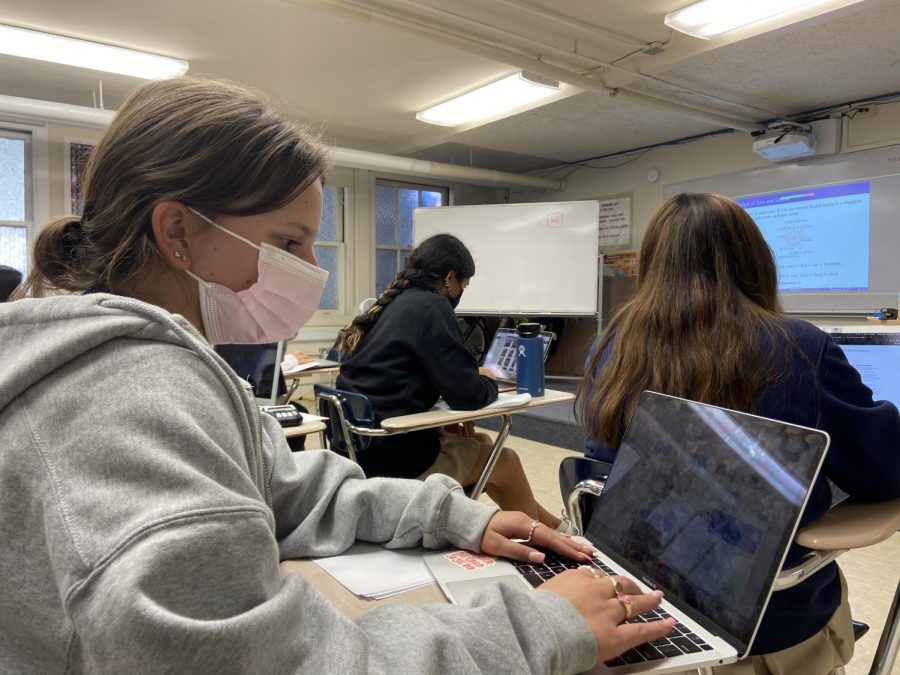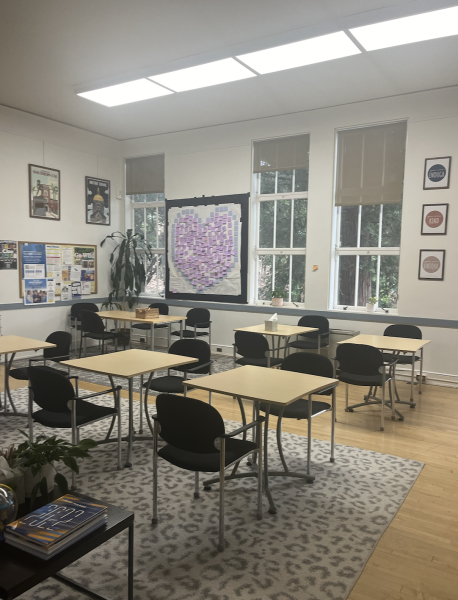The assignment is due tonight?: Limiting deadlines to next class can help students separate academic and personal time
The Catalyst / Molly Phan
Juniors in math teacher Leonardo Bardomero’s classroom view lessons on their laptops, instead hard copy textbooks or handouts.
For high school students, it is not uncommon to be overwhelmed with busy schedules. Between heavy work loads from honors and AP courses, electives, clubs, sports and extracurriculars, it can be difficult for many to set time aside for themselves. One way to limit the stress that comes with students’ busy lives is to also limit the technology we use for assignments in and out of the classroom.
During the times of distance learning over the past roughly two years, the way students and teachers used technology to organize lessons and assignments has become much more advanced. But with the return to on-campus learning, this constant usage of online learning platforms, such as Schoology, seems to be both a blessing and a curse.
Although online lessons and assignments have proven to be an efficient and organized way of teaching and learning, students and teachers must realize that it is not essential all of the time. Through these platforms, teachers have the ability to assign strict deadlines at any time, which can be hard on students who have priorities other than their homework after school or on the weekends.
Take students who are involved in after school activities, for example. If a homework assignment is due at eight or nine P.M. online the day the work was assigned and they have other obligations, such as sports or club meetings during those times, they are put at a disadvantage trying to balance those assignments and their outside activities.
Even though it is more efficient to submit and assign work over platforms, such as Schoology, homework assignments should be due at the beginning of their next class period and not whenever the teacher decides they should be submitted. When students are asked to keep track of various homework deadlines for all of their classes, instead of just completing assignments before their next class, it can feel as if their school work is taking over their lives.
These challenges for students can be solved by simply reducing the amount we use the internet for assignments. Schools can choose to implement more physical or even handwritten assignments so students can physically turn in their work and not have to be overwhelmed with the scattered online deadlines. Through our months and months of being forced to learn through Zoom, it was made clear that staring at our computer screens was tedious and tiring.
We should take advantage of being back in the classroom by using worksheets, notebooks and pens, instead of Google documents. Through these changes, students will be able to show their work clearer and map out their thinking better than they are able to on their computers.
Even though our personal laptops are an essential resource to the students, teachers and faculty at NDB, the overuse of this technology can be harmful to everyone’s well-being, especially students.
Along with all they have to deal with, they should not be expected to constantly keep up with various deadlines and notifications from their classes while outside of the classroom. Time after school or on the weekends is personal time for students, so being bombarded with online school work can make it difficult to separate academic and personal life.

Molly Phan is a senior at NDB and it is her third year with The Catalyst. She was involved in the journalism club her sophomore year and served as the...




